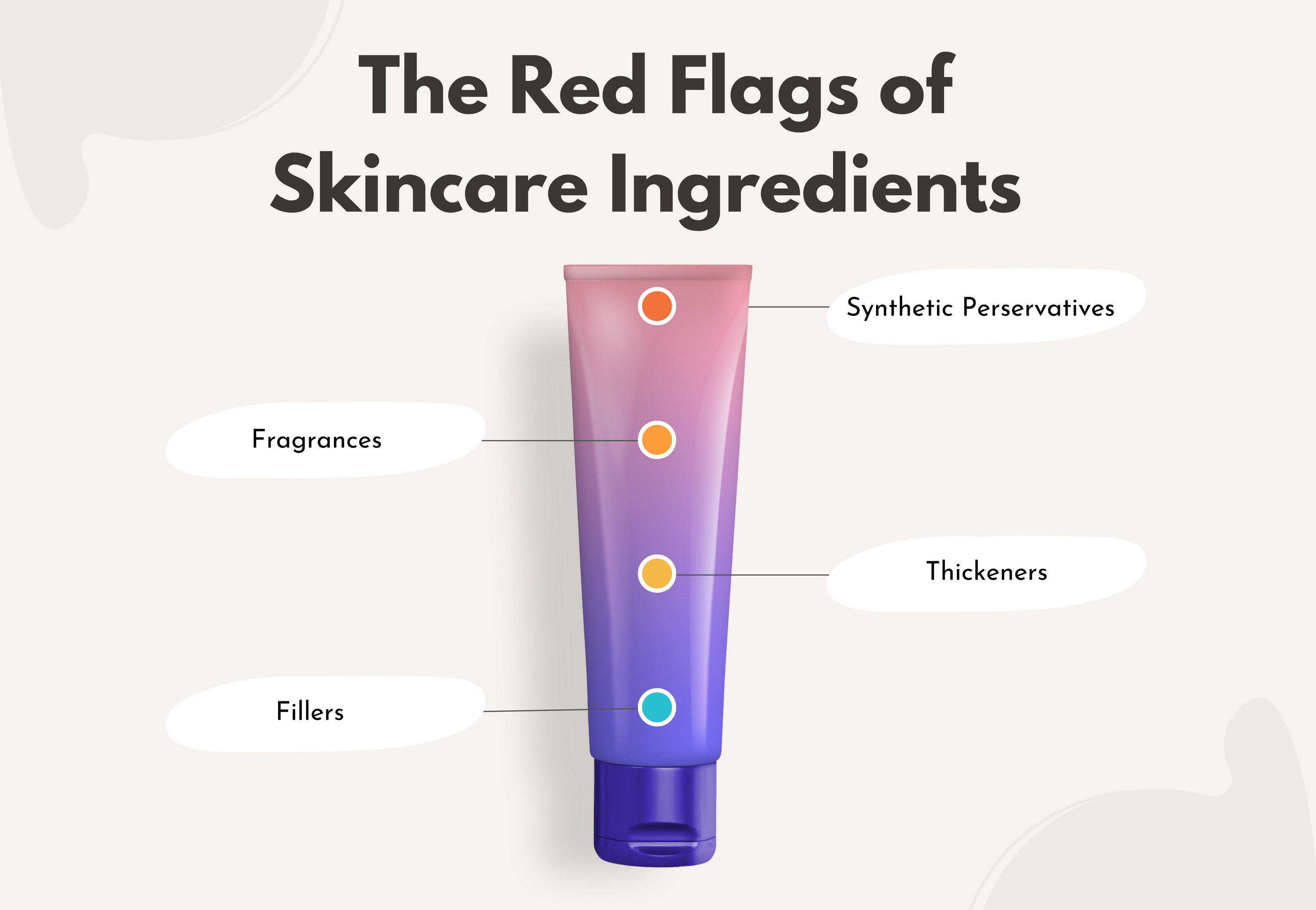
Fragrances, fillers, thickeners..oh my! These on top of dyes, emulsifiers, and synthetic preservatives are the most common ingredients in most skincare products. If you take a look at any of your skincare products (that aren’t Skin Food Fix) you will more than likely see a few, if not all, in your products.
When looking at products ingredients, they are always listed in order of predominance, meaning the ingredients used in the largest amount are first, followed in descending order by those in smaller amounts. Unfortunately, the most popular first ingredient in many products is water, so your product is mostly made of water, and typically very little of the actual ingredient they are advertising for. Even though water as the first ingredient isn’t bad for you (just for your wallet), let’s take a look at Kiehl’s $88 “Powerful-strength vitamin c serum”. Their first ingredient is propylene glycol… which is absolutely terrifying, especially for it to be what the product is mostly made of. PEGs (propylene glycol compounds) are linked to contamination with ethylene oxide and 1,4-dioxane, which are both associated with multiple kinds of cancer and can cause damage to the nervous system. PEGs are considered penetration enhancers, which are substances that make it easier for other ingredients to pass through the skin. When PEGs are found in formulations containing other toxic ingredients, those ingredients could more readily enter the body. Propylene glycol is considered a blacklisted ingredient in the clean beauty world. The rest of their list of ingredients is just scary and toxic, and should definitely be avoided at all costs. For a 2.5 fl oz bottle that costs $88, you would think you’d be getting the highest quality ingredients possible, right?
Another big one which are in So. Many. Products. are fragrances. The term “fragrance” was actually created to protect companies’ “secret formulas” and the word “fragrance” on a label can actually indicate hundreds of toxic chemicals, without any of those specific ingredients having to be disclosed. Over 3000 different ingredients can be used to make a fragrance, and there’s no way to know what the chemicals are because formulas are protected under federal law’s classification of trade secrets. Artificial fragrance is one of the leading causes of itchy, red rashes (aka contact dermatitis) and skin sensitivity. Yes, fragrances smell nice, but they’re doing nothing for your skin, and are quite toxic for you.
Dyes are added to skincare products to make them look good. That’s it. There is no science behind a pink cream helping your skin more than a white cream. But to be clear, we are talking about synthetic dyes, the ones made in a lab. If a cream uses blue tansy oil and it has that millennial blue hue, that’s a different story. Many synthetic dyes are derived from coal tar and can contain heavy metals that seep harmful toxins into the skin. Some dyes to watch out for are Yellow 5, which has been linked to severe allergies, and Yellow 6, which is actually banned from use in Norway and Sweden due to its links to tumors, asthma, and eczema.
By definition in the skincare world, a filler is an ingredient that’s used to add more volume or create a smooth, silky texture. But fillers provide little to no value to your skin health and they don’t make the product work any better. Beauty companies use fillers to make more money and to fill up the volume in their product. Many times when a company is trying to sell their product, they hype up the “key” ingredient and you think that’s what it’s mostly made of, but when you turn over to read the label, the first 10 ingredients are things like propylene glycol, silicone, sodium lauryl sulfate, parabens, etc. Which are not only toxic but have no substance.
Here are some other toxic ingredients to avoid:



